Retinol Vs. Retinoid: What You Need to Know About These Potent Anti-Agers



IPSY Editors


Ask any skincare obsessive, and they’ll tell you that retinol is the key to your best skin ever. We’re talking plump, youthful-looking skin that’s free from texture, fine lines, breakouts, and clogged pores. Sounds pretty magical, right? Well, it is a little more complicated. Nothing that efficacious comes without some side effects. Plus, there are decisions to make, including whether you use a retinol or retinoid. Yup, they’re different. The biggest and most obvious difference is that retinol is over-the-counter (OTC) and retinoids are prescription strength.
That means, you can get a retinol product at your nearest drugstore and there’s a chance you’ll see some incredible benefits. Perhaps even, this is the best route for your unique skin. Or this over-the-counter retinol won’t be strong enough for what you need, and prescription-strength retinoids from the dermatologist are your best bet. So, how do you know what’s best for you? And what really is the difference between the two formulas?
We chatted with a dermatologist and esthetician to answer all our most burning questions. Here’s everything you need about retinols and retinoids.


It's about glam time you treated yourself.
MEET THE EXPERT
Marisa Garshick, MD, FAAD, is a board-certified dermatologist at MDCS: Medical Dermatology and Cosmetic Surgery Centers and an Assistant Clinical Professor of Dermatology at New York Presbyterian-Cornell.
Ali Tobia is a licensed esthetician based in New York City.
How Do Retinol and Retinoids Differ?
You already know that retinols are over-the-counter and retinoids are prescription strength, but Marisa Garshick, MD, FAAD took us a step further than that. “Retinol and retinoids are both vitamin A derivatives that can be used in the treatment of acne and have benefits for anti-aging as they regulate skin cell turnover, helping to brighten the skin, improve the appearance of fine lines, wrinkles, pores and dark spots as well as stimulate collagen production,” she explains. “When a product is used, it is converted to retinoic acid and diffuses through the cell membrane to bind nuclear receptors to promote cell turnover.” Plus, “ Retinols are a narrower category within retinoids and tend to contain a lesser concentration of retinoic acid,” says Ali Tobia, licensed esthetician. However, that doesn’t mean they’re less effective, just that the composition of the product might be less concentrated, she says.
Here’s the deal between OTC and prescription. When compared to retinoids, Dr. Garshick says, retinols are generally considered less irritating than the prescription alternative, retinoids. This is because they have to be converted to retinoic acid in order to be effective, as opposed to the prescription tretinoin that exists already as retinoic acid. This is the case whether it’s a topical skincare product, moisturizer, or eye cream.
Should You Use a Retinol or Retinoid Product?
Your best bet is to speak to a dermatologist, so they can recommend an over-the-counter retinol or prescription retinoid. They’ll take into account whether you have sensitive skin, are more acne-prone, or dealing with more fine lines and wrinkles. Regardless, most people would benefit from either a retinol or retinoid.
Retinoid:
• People with Acne
• People looking for anti-aging benefits
• People already familiar with retinol products (skin has been exposed)
“For those who have acne, I generally recommend seeing a board-certified dermatologist to discuss options for a prescription strength retinoid or finding one over the counter, which is now available as adapalene that has been studied for the treatment of acne,” says Dr. Garshick.
“Most people who have been through a Retin-A cycle in high school can immediately relate to the retinoid experience,” says Tobia. “Most of the time, doctors will prescribe a treatment plan that includes a ramp-up period that allows for a slow adjustment to retinoids.”
Retinol:
• People with sensitive skin
• First-time retinol users
• People looking for anti-aging benefits.
Dr. Garshick recommends that those with sensitive skin start with a non-prescription, OTC retinol, as these can often be less irritating and easier to tolerate. If your skin is responding well and you build up tolerance, you can always increase the strength by speaking with a dermatologist about when may be a good time to start a prescription retinoid.
Are There Any Side Effects?
Unfortunately, both retinol or retinoid have a few side effects, but they can generally be managed. If you’ve ever heard of the “retinol scaries,” you know there’s a period of time when your skin is adjusting to the increased cell turnover. This can show up as dryness (including that dreaded flaking), redness, burning, and sensitivity of the skin. “While anyone can experience irritation from a retinoid, it is often more common in those with sensitive skin,” explains Dr. Garshick. “The degree of irritation may be related to the concentration of the retinol and the type of retinol used, as those that require more steps to be converted to retinoic acid may be less irritating.”
When it comes to retinol products for more sensitive skin, it’s best to look for a formulation with hydrating and soothing ingredients including hyaluronic acid that can help to reduce sensitivity. Using moisturizer post-application helps, too. Dr. Garshick recommends “starting low and going slow” with a pea-sized amount over the entire face. Start off only using a type of retinoid a few times a week and increasing the frequency as tolerated. If you see more skin irritation, it’s totally OK to skip a few days
How to Use Retinol and Retinoid Products?
There’s a lot of misinformation around what you can and can’t mix with a retinol and retinoid. Some believe vitamin C and retinols don’t mix, but that’s been disproven as long your skin can tolerate it. The only thing you should always apply while using vitamin A is sunscreen because some studies have shown vitamin A derivatives can increase the skin’s sensitivity to the sun. Either way, you should be using sunscreen every day anyway.
Skincare products you really want to avoid with retinoic acid are other acne treatments, including salicylic acid. You don’t want to over-exfoliate with alpha hydroxy acids or benzoyl peroxide as it may increase the risk of sensitivity or irritation. Of course, that is unless your doctor recommends it. Instead, think about adding hydration and skincare that will calm the skin. “Most retinols and retinoids are intended for nighttime use and it is generally best to apply to dry skin after you wash your face and before you apply your moisturizer,” explains Dr. Garshick.
“For those with sensitive skin and those who are unable to tolerate their retinoid, it may be helpful to apply a moisturizer to the skin first and then the retinoid after and then even reapply the moisturizer again, in what’s become known as the sandwich technique,” she adds.
6 Retinol and Retinoid Products We Love:
1. CLARK’S BOTANICALS Retinol Rescue Overnight Cream


This gentle retinol cream contains nourishing vitamin E to keep skin hydrated and healthy as it works its magic. It helps even skin tone and texture and reduce the appearance of fine lines and wrinkles.
2. HEY HONEY Look Into My Eyes Retinol Eye Mask
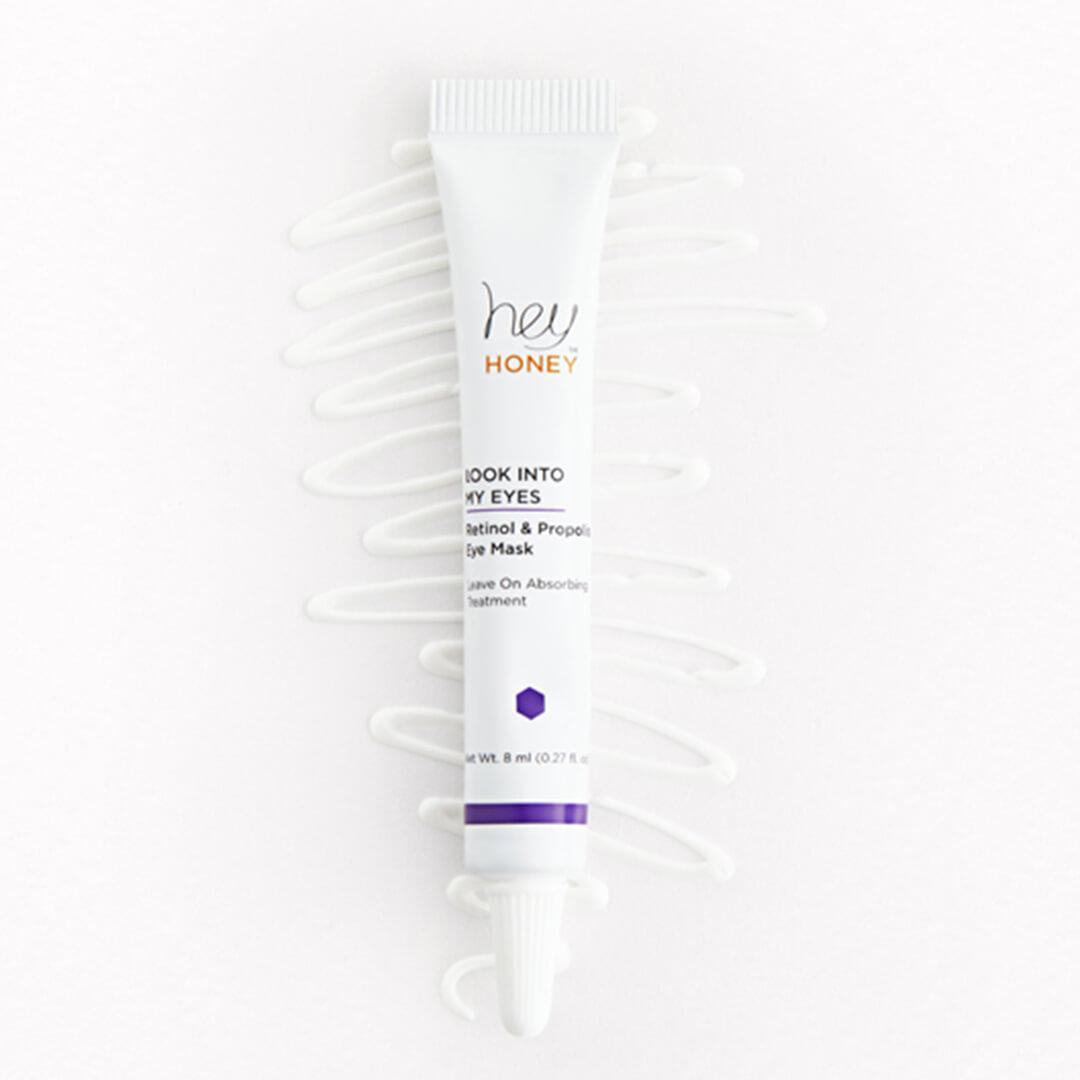

Target those under eye bags and lines with retinol eye mask that’s packed with moisturizing ingredients. While retinol boosts collagen production, anti-inflammatory propolis calms irritation and diminishes breakouts. Plus, squalane and coconut oil hydrate even the most sensitive skin.
3. MURAD Retinol Youth Renewal Night Cream
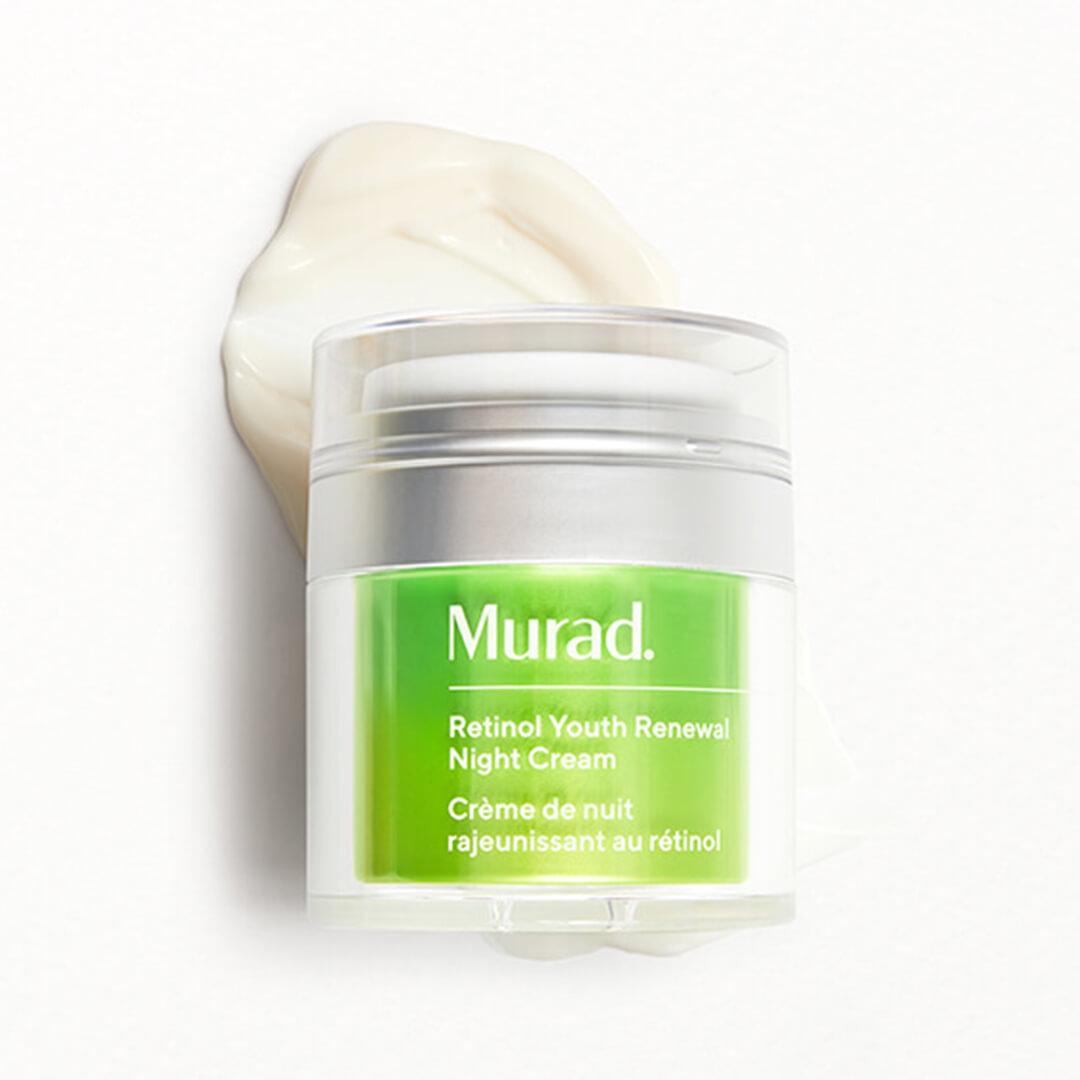

A gentle, time-released form of retinol directly targets the signs of aging to help reduce the appearance of lines overnight. But it’s also extremely moisturizing so you don’t have to worry about adding an extra step of hydration.
4. SUNDAY RILEY Luna Sleeping Night Oil
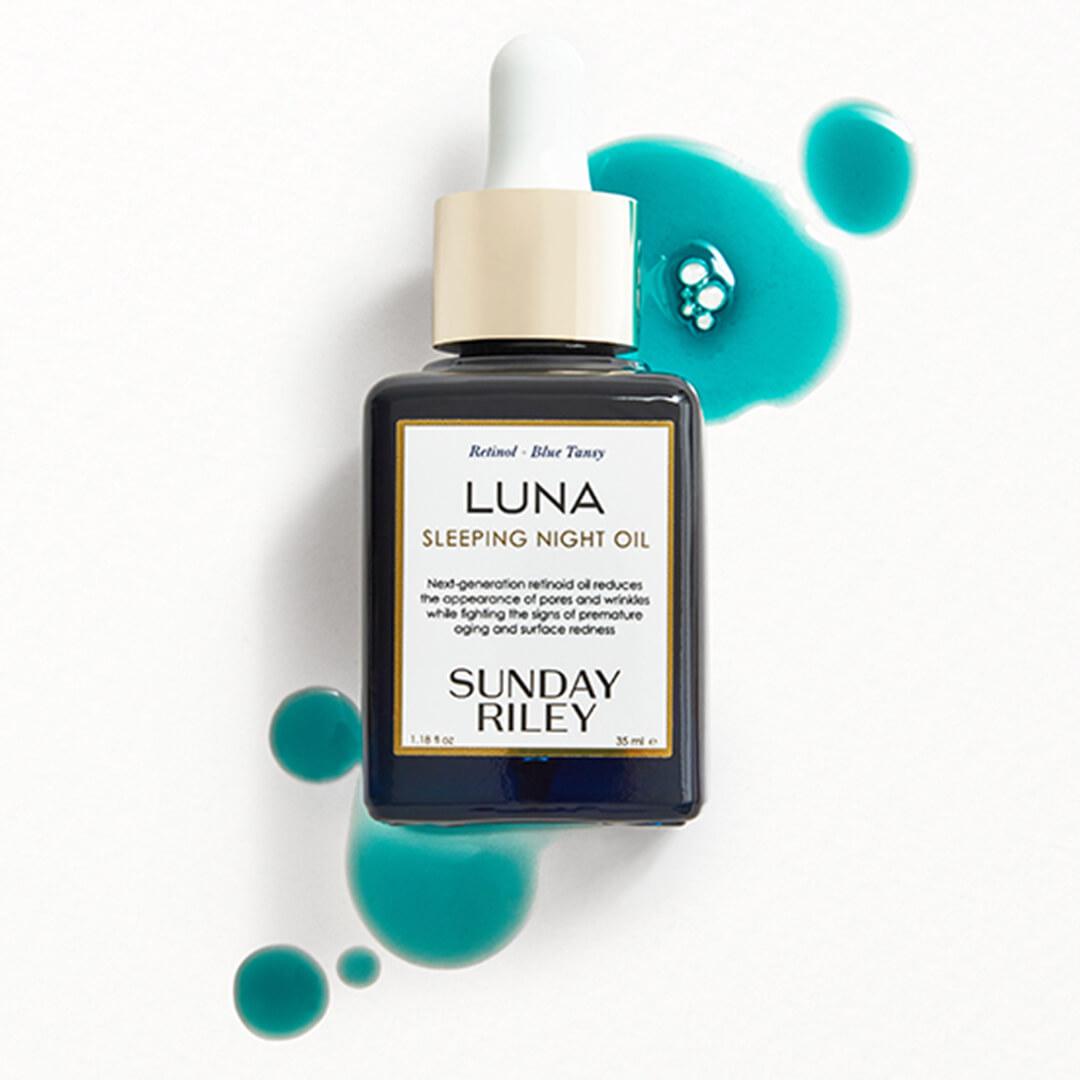

This powerful night oil increases collagen and elastin production to keep skin soft, plump, and firm. The increased cell turnover means smaller-looking pores, smoother texture, and a brighter tone overall. If you have sensitive skin, take note that this also has anti-inflammatory botanicals, like chamomile, blue tansy, and blue azulene to calm irritation and redness.
5. MURAD Retinol Youth Renewal Eye Serum
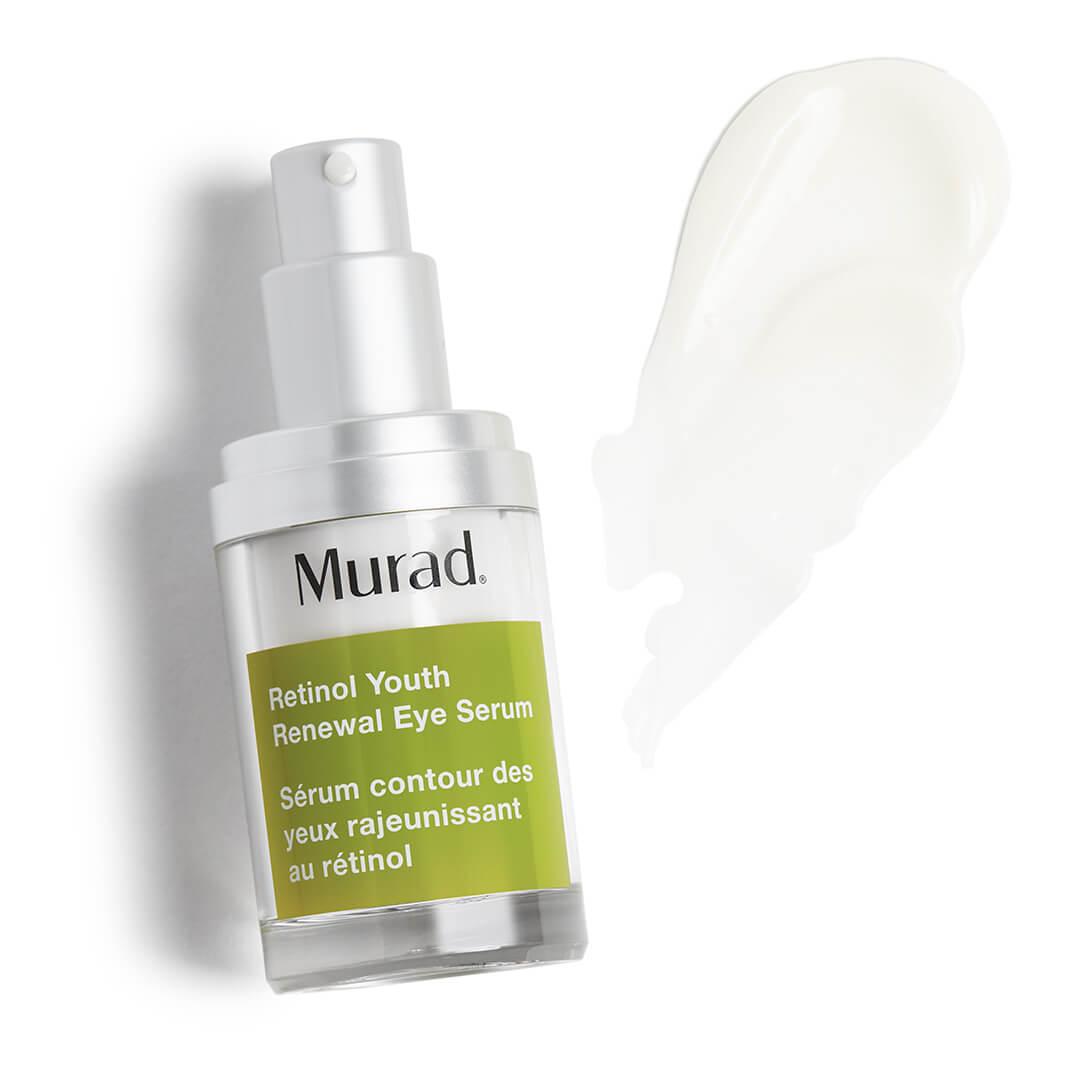

This serum is tiny but mighty, lightweight and perfect for melting right under your eyes. It contains fast-acting retinoid and peptides to decrease the look over under eye wrinkles. Plus, swertia flower extract helps boost firmness and elasticity, while red algae and giant kelp lifts, firms, and brightens dark circles.
6. VERSO SKINCARE Dark Spot Fix

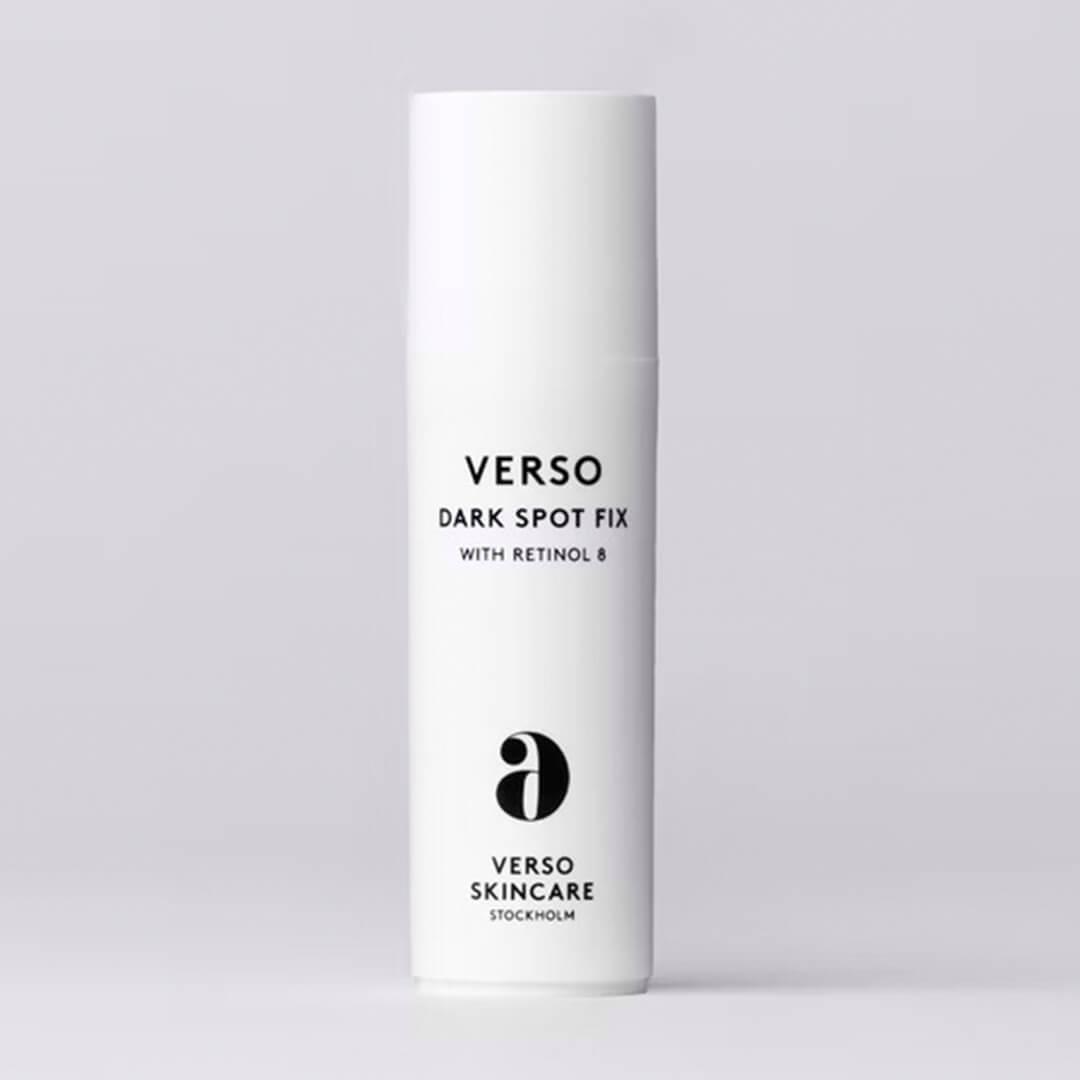
Because of the increased cell turnover, retinol can also help fade hyperpigmentation and dark spots. This dark spot correcting serum features the brand’s “Retinol 8 complex” to shed those pigmented cells, as well as niacinamide and turmeric to help prevent future dark marks.
7. SKINMEDICA Retinol Complex 0.5


Tobia recommends this retinol to her clients since it’s recommended for all skin types. “You’ll want to work your way up to it since it’s at 0.5,” says Tobia, “but you won’t regret it, especially for the reduction of fine lines and wrinkles.”
Want in on all the IPSY Glam Bag fun? Take our Beauty Quiz now to get started. Already an Ipster? Refer your friends to earn points, which you can use toward products. Either way, don’t forget to check us out on Instagram and Twitter @IPSY.
Like this article? Share it with your friends by clicking the icons below!
Liked this post? Share!
Related Stories


Skin
How to Adjust Your Skincare Routine for Mature Skin in the Winter
Published on Dec 4, 2025 • 7 min read


Skin
Meet the Best Moisturizers for Winter, According to Dermatologists
Published on Dec 1, 2025 • 9 min read


Skin
What Is Inflammaging—and Why Everyone’s Talking About It
Published on Dec 1, 2025 • 8 min read


Skin
6 Skincare Trends to Have on Your Radar in 2026, According to Experts
Published on Dec 1, 2025 • 7 min read


Skin
We Grabbed Our Crystal Ball and Found These 6 Skincare Predictions for 2025
Published on Dec 10, 2024 • 7 min read


Skin
Simple Self-Care Tips That Actually Make a Difference
Published on Nov 13, 2025 • 12 min read


Skin
These 9 Face Scrubs Will Unlock Soft and Smooth Skin on Contact
Published on Nov 5, 2025 • 10 min read


Skin
10 Thanksgiving Foods That Will Have Your Skin Coming Back for Seconds
Published on Oct 15, 2025 • 7 min read


Beauty Picked Just for You
Get 5 products worth up to $70
Plus exclusive access to epic deals up to 80% off
Starting at just $14/month. Cancel anytime.